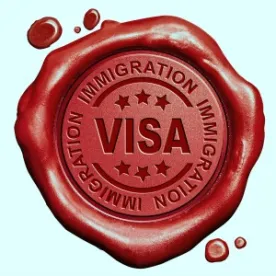On December 3, 2018, the U.S. Department of Homeland Security (DHS) introduced a new plan that would require employers to pre-register all potential H-1B candidates for selection in the H-1B lottery. Pursuant to the proposal, an employer would be permitted to submit an H-1B petition only on behalf of a candidate whose registration was selected by U.S. Citizenship and Immigration Services (USCIS). DHS believes that the registration system will streamline the H-1B application process by limiting the total number of petitions filed by employers and adjudicated by USCIS. DHS hopes to have the new registration process operational by the start of cap season on April 1, 2019. The proposal does, however, include a provision that allows USCIS to delay implementation if the registration system is not yet ready.
Potential Impact
The proposal comes as many employers are beginning to prepare for the upcoming cap season and adds a layer of complication to the planning process. It is unclear whether USCIS will use the new registration system to process H-1B petitions or if it will default to the existing random lottery that has been in use for years. If USCIS implements the registration system, an employer must electronically register all of its H-1B candidates and file petitions for those candidates who are selected in the registration process. If USCIS delays implementation of the registration process, employers must be prepared to submit H-1B petitions for all H-1B candidates on April 1, 2019, as has been done in the past. Employers may want to prepare to file H-1B cap cases as has been done in recent years, expecting that there will be a random lottery selection process.
Summary of the Proposed Rule
Online Registration
-
What’s new? DHS has proposed the implementation of a mandatory electronic registration process for all H-1B cap-subject petitions. Petitioning employers will be required to submit basic information such as the employer’s name, address, and federal employer identification number (FEIN). In addition, the employer must provide the intended candidate’s name, country of birth, country of citizenship, and gender. It must also disclose whether the candidate has an advanced degree from a qualified U.S. institution.
-
What’s the timeline? The proposed registration period will begin at least two weeks prior to the first day of filing for the upcoming fiscal year (April 1, 2019, or the first business day thereafter). USCIS will notify the public at least 30 days prior to the opening of the initial registration period. Unless otherwise indicated, an employer may only submit a registration if the requested start date is the first business day of the upcoming fiscal year.
-
What’s the goal? The registration system is intended to improve the efficiency of the H-1B filing process. Employers only have to file a labor condition applications (LCA) and H-1B petitions for the candidates who have been selected for adjudication instead of preparing and filing for all candidates, as is the case now. USCIS is expected to process petitions faster since fewer petitions will be filed and the case filing periods may be staggered.
-
What will change? Employers may only file H-1B petitions on behalf of candidates whose registrations are selected. The proposed rule says that, upon notification of selection, employers will be given at least 60 days to file the H-1B petition. In some instances, the filing period may be staggered by USCIS.
-
What else?
-
Employers may file only one registration per H-1B candidate. A related employer may register for the same candidate if there is a separate, bona fide job offer.
-
USCIS is not currently proposing a filing fee for registration.
-
Registrations cannot be edited once submitted.
-
Registrations are nontransferable. If selected for adjudication, the employer must petition for the H-1B candidate named on the registration and may not substitute another candidate.
-
Suspension
Under the proposed rule, USCIS may suspend the electronic registration process during any fiscal year if it experiences technical challenges. The suspension provision also allows USCIS to delay the implementation of the new system if it will not be ready in time for fiscal year (FY) 2020 cap season which begins on April 1, 2019. If the registration process is delayed, employers will be required to file an H-1B petition for each H-1B candidate on April 1, as in past years.
The Advanced-Degree Selection Process
-
What’s new? USCIS will count all registrations toward the regular cap first. Once the projected number of registrations necessary to meet the regular cap are received, USCIS will then select the number of registrations needed to meet the advanced-degree exemption.
-
What’s the timeline? This advanced-degree proposal is separate from the electronic registration process and is likely to be implemented during the FY 2020 cap season regardless of whether the electronic registration system is ready for implementation at that time.
-
What’s the goal? The proposal was introduced in furtherance of President Trump’s Buy American and Hire American executive order, which called upon DHS to suggest changes to the H-1B visa process to ensure that visas were awarded to the most-skilled and highest-paid candidates. By changing the order in which petitions are selected for adjudication, DHS expects to increase the number of candidates with advanced degrees who are chosen for the H-1B regular cap.
-
What will change? Under the current system, the advanced-degree lottery is held first, and any unselected petitions are added into the regular cap lottery.
-
What else?
-
Depending on the number of registrations received, USCIS has the option to close or extend the registration period until it receives the number of registrations it believes are necessary to meet the H-1B visa allotment.
-
USCIS would hold unselected registrations in reserve for that fiscal year.
-




 />i
/>i


